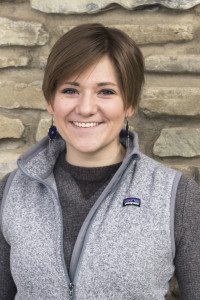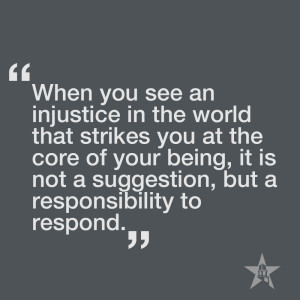A Responsibility, Not a Suggestion
For many of us at Houghton College, the Faith & Justice Symposium is an annual reminder of the reality of the injustices that are present in the world we live in. This Wednesday, Reverend Tafue Lusama shared his powerful story of how climate change and sea level rise is affecting his home: the island nation of Tuvalu in the South Pacific. And yet his story is not limited to the South Pacific Island nations. The climate crisis that the citizens of Tuvalu are facing is the same crisis that members of every nation across the globe are facing: our world is changing and we must change with it, for better or for worse.
 I could list overwhelming amounts of scientific explanations of how climate change is negatively affecting humankind, but the data, numbers, and jargon probably won’t change your life; those things didn’t change mine.
I could list overwhelming amounts of scientific explanations of how climate change is negatively affecting humankind, but the data, numbers, and jargon probably won’t change your life; those things didn’t change mine.
What changed my life? Experiencing reality changed my life. In the past two years I have seen how climate change has affected people’s livelihoods from the mountains of Tanzania to the Alaskan coast. From climate scientist, Katharine Hayhoe, to my homestay parents in Tanzania, I have heard stories of climate change affecting individuals’ lives.
Climate change, I realized, is an injustice that has social, economic, and physical ramifications. And the greatest injustice of climate change is the reality that those who are affected the most have contributed the least to the problem. Once I connected these dots, I had a decision to make: do something or do nothing. There is no middle ground. I am – we all are – called to loving action, no ifs-ands-or-buts about it.
This call to action became real to me when I had the opportunity to lobby Representative Tom Reed’s staffer, Drew Wayne, to support the PREPARE Act (a bill designed to help communities prepare for the dangerous effects of extreme weather) in Washington D.C. this summer. I was in the capitol for ten days to be trained as an Advocacy Corps Organizer for the Friends Committee of National Legislation Headquarters – one of eighteen young adults from across the country who joined together with the goal of bringing climate issues to the forefront of our Senators’ and Representatives’ attention.
 My life has been changed by the stories I have heard on climate change, and I have realized that my voice, MY story, has the potential to influence change. This is where you step in. You also have a voice. When you see an injustice in the world that strikes you at the core of your being, it is not a suggestion, but a responsibility to respond.
My life has been changed by the stories I have heard on climate change, and I have realized that my voice, MY story, has the potential to influence change. This is where you step in. You also have a voice. When you see an injustice in the world that strikes you at the core of your being, it is not a suggestion, but a responsibility to respond.
Before you stop me and say that you don’t want to get involved in politics, I remind you that our government is designed for its people, regardless of what cynics may say. As I found out this summer, as a constituent of a district, you have a legal right to lobby your congressperson. Scheduling a visit may be challenging because of time constraints, but it is free. While you have to go through security to enter any of the House or Senate Office buildings, you can enter at any time. The only thing stopping you from talking to your congressperson or their legislative staff is you.
And here is where I lay it on thick: Reverend Lusama is here on a speaking tour of the United States to talk about how climate change is affecting his country, in an effort to encourage American people to act. Because even though his nation may be physically destroyed by rising sea levels, he does not have the ability to change American policy on climate change. Who does? Our Congress does. Who can talk to Congress? Citizens of the USA. What are you? A Citizen of the USA.
You have the ability to communicate the need for bipartisan action on climate change to Congress. Your voice, your story, your passion has the potential to make a difference, if you use it. Don’t waste your voice. I refuse to waste mine.
